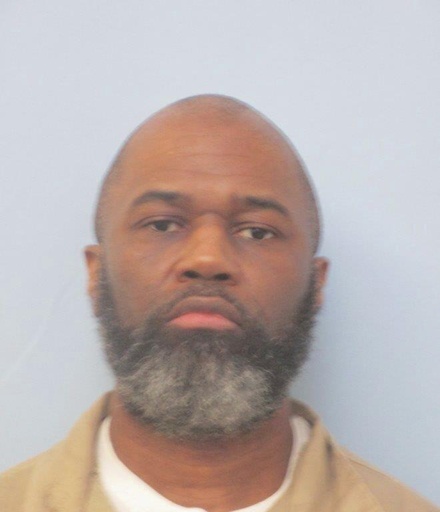
Atmore, Alabama – On Thursday evening, an inmate in Alabama was executed by nitrogen gas, marking the fourth time this execution method has been utilized in the United States. Demetrius Frazier, aged 52, was declared dead at 6:36 p.m. CST in a southern Alabama correctional facility, following his conviction for the 1991 murder of 41-year-old Pauline Brown. This execution was the first in Alabama for the year and the third nationwide in 2025, succeeding a lethal injection in Texas and another execution in South Carolina.
In his last statement, Frazier expressed remorse, saying, “First of all, I want to apologize to the family and friends of Pauline Brown. What happened to Pauline Brown should have never happened.” He also criticized Michigan Governor Gretchen Whitmer, claiming she failed to intervene during efforts to have him serve his life sentence in Michigan, where the death penalty is not in effect. Frazier concluded his remarks with, “My last word. I love everybody on death row. Detroit Strong.”
Frazier’s mother and advocates against the death penalty had lobbied for him to be returned to Michigan, where he faced a life sentence for the murder of a teenager before he was transferred to Alabama. After Frazier’s confession to police regarding Brown’s murder in 1992 while in custody in Michigan, the state authorities had jurisdiction over his case. In response to Frazier’s execution, Whitmer remarked that her predecessor made the unfortunate choice to send Frazier to Alabama, which left the matter in the hands of the state’s officials. She acknowledged the difficult nature of the situation, highlighting that Michigan does not permit capital punishment.
According to prosecutors, on November 27, 1991, a 19-year-old Frazier unlawfully entered Brown’s home in Birmingham while she was asleep. After demanding money, he raped her at gunpoint after she handed over $80 from her purse. Prosecutors stated that he subsequently shot her in the head and later returned to the scene in search of more money and to have a snack. Frazier had previously received a life sentence in Michigan for the murder of 14-year-old Crystal Kendrick. He was convicted of murdering Brown by an Alabama jury in 1996, which recommended a death sentence by a 10-2 vote. Frazier was moved to Alabama’s death row in 2011 following an agreement between the governors of the two states.
Alabama recently became the first state to carry out executions through the use of nitrogen gas, completing three such executions in the previous year. The method involves placing a specialized mask over the individual’s face to replace breathable air with pure nitrogen, ultimately causing death by asphyxiation.
During the execution, Frazier was secured to a gurney equipped with a blue gas mask. The execution commenced at approximately 6:10 p.m., following a final inspection of the mask by a corrections officer. As the gas began to flow, Frazier initially moved his outstretched hands in a circular motion for the first couple of minutes. By 6:12 p.m., he stopped that motion but appeared to exhibit signs of distress, such as grimacing and gasping for air. By 6:14 p.m., his breathing became sporadic, and he was motionless by around 6:21 p.m. The execution chamber curtains were drawn at 6:29 p.m.
Following the execution, Alabama Corrections Commissioner John Hamm noted that the nitrogen gas was administered for approximately 18 minutes, clarifying that monitoring instruments indicated Frazier had no detectable heartbeat within 13 minutes of the gas being initiated. Hamm expressed his belief that Frazier lost consciousness rapidly and that movements afterward, including the raising of his legs and sporadic breathing, were likely involuntary.
A federal judge had denied a request to halt the execution just the week prior, despite defense attorneys contending that the new execution method does not work as quickly as originally claimed by the state. Witness reporters from various media outlets, including the ones present during previous executions, reported instances where those executed exhibited involuntary movements at the onset of the procedure. However, the judge determined that the execution experiences did not present evidence of significant psychological trauma beyond what typically occurs in such instances.
Some members of Brown’s family were present for the execution but chose not to speak to the media following the event. In a statement after the execution, Alabama Governor Kay Ivey affirmed the state’s dedication to upholding the law, declaring that individuals who commit such severe crimes would not be tolerated and emphasizing that justice had been served for Pauline Brown and her family. In his final hours, Frazier shared moments with his mother, sister, and legal counsel and chose a final meal from Taco Bell, which included burritos.

